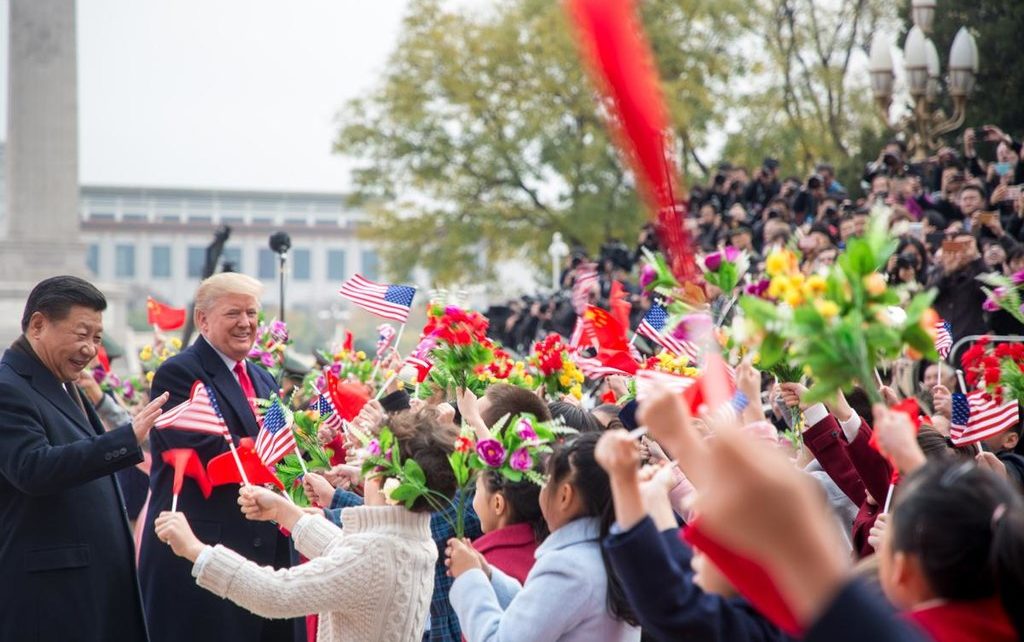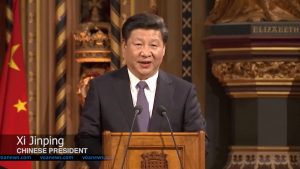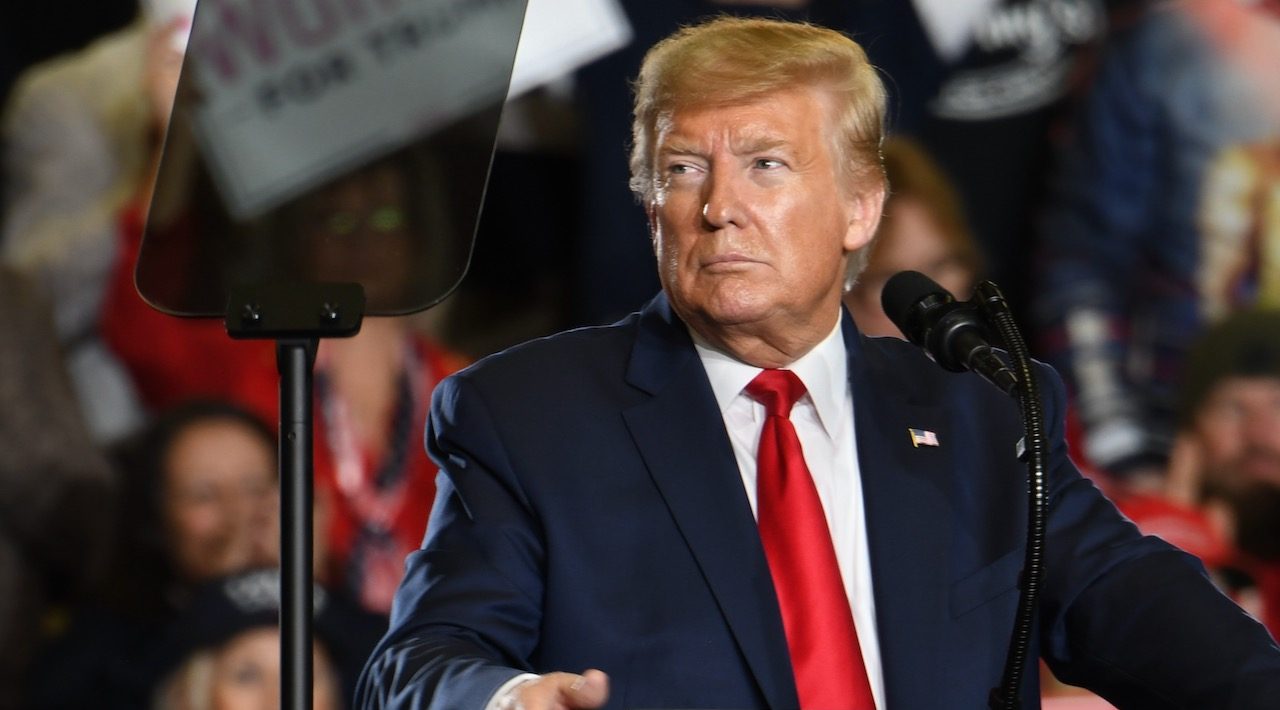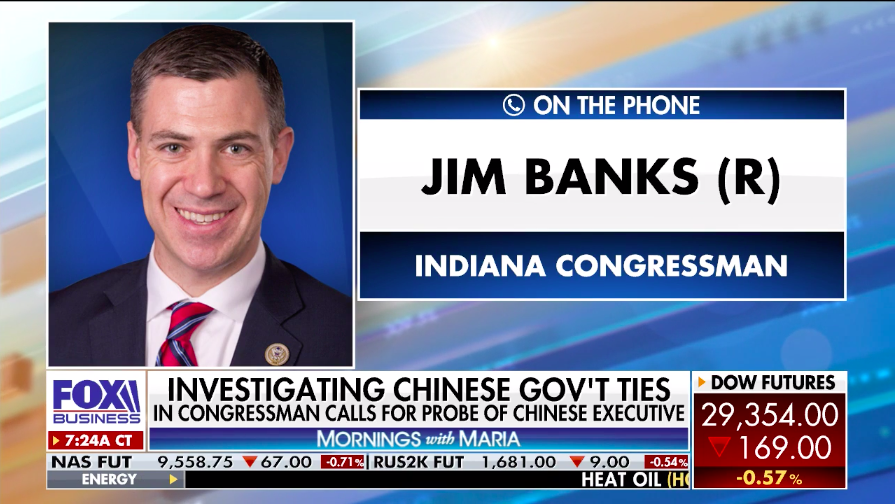
President Trump and Xi Jinping. (Photo: Wikipedia)
Academia Must Wake Up to Sophisticated Chinese Espionage Threat
Obama administration, under the direction of Vice President Joe Biden, welcomed Chinese endeavors to co-opt American institutions
By James Lacy, June 23, 2020 2:33 pm
Amid the frivolity of frat houses, football games and spring break parties lies a far more serious concern on America’s college campuses.
“China’s Communist Party uses American professors and Chinese national students as ‘nontraditional collectors’ of valuable information,” explains Congressman Michael Waltz of Florida. “Make no mistake: the Chinese government is stealing this information for later use against us.”

A member of the Armed Services Committee and former Green Beret, Waltz has become one of the leading seers of the real and present danger posed by the Chinese Communist infiltration of U.S. higher education institutions.
In January, authorities announced federal indictments against three individuals who were involved in a sophisticated Chinese espionage effort. Most notably, the indictment included Dr. Charles Lieber, the chair of Harvard’s Chemistry and Chemical Biology Department. Through the Chinese Communist-funded “Thousand Talents Program,” Dr. Lieber allegedly pocketed hundreds of thousands of dollars, while working on vital Department of Defense research.
“This is not an accident or a coincidence,” said U.S. Attorney Andrew Lelling. “This is a small sample of China’s ongoing campaign to siphon off American technology and know-how for Chinese gain.”
China has more foreign exchange students studying in the U.S. than any other country in the world. That makes it easy for the Chinese military to covertly place individual spies to pose as legitimate university students. Such was the case with Ji Chaoqun, a Chinese spy who posed as an electrical engineering student in Chicago. He allegedly recruited eight other spies working at key defense contractors.
Cornell University professors Barry Strauss and R. Richard Geddes, a visiting scholar at the American Enterprise Institute, are two of the few academics to publicly speak out against the Chinese Communist influence campaign.
The pair describe the Chinese Communist government’s efforts as “a global propaganda campaign — a sophisticated, data-driven effort, aided by a massive social-media blitz — to portray itself as a worldwide savior, rather than a state with a lot of explaining to do.”
“China has been ruthless in its quest to steal research, control information, and gain approval,” they add.
It’s not just spying. China has also implemented a sophisticated propaganda campaign with campus entities, known as Confucius Institutes.
“While Confucius Institutes hide behind carefully cultivated images of benign organizations, in reality they actively foment anti-Western ideology on impressionable young college students,” points out Ahnaf Kalam, the director of The Scruton Institute.
“They inundate their curricula with historical revisionism and falsehoods on the topics of Taiwan, Tibet, Hong Kong, the Tiananmen Square massacre, and China’s human rights record as a whole.”
A 2018 investigative report by Politico revealed how the Confucius Institutes “go to some length to obscure their political purpose.” In total, the institutes have spent $150 million across 100 entites at high schools, colleges and universities in the United States.
“Coordinate the efforts of overseas and domestic propaganda, [and] further create a favorable international environment for us,” Chinese minister of propaganda Liu Yunshan reportedly said of the institutes, according to the Politico investigative report. “With regard to key issues that influence our sovereignty and safety, we should actively carry out international propaganda battles against issuers such as Tibet, Xinjiang, Taiwan, human rights and Falun Gong. … We should do well in establishing and operating overseas cultural centers and Confucius Institutes.”
Other countries have taken a firm stand against Chinese propaganda. This spring, Sweden recognized the threat and kicked out the Confucius Institutes.
“Confucius Institutes import censorship into American higher education,” Rachelle Peterson, policy director at National Association of Scholars, told the Epoch Times. “They are inherently at odds with the intellectual freedom that a college or university requires.”
Instead of assisting law enforcement with its investigation into Chinese espionage, U.S. academic institutions are doubling down on their support for China. Yale University President Peter Salovey went out of his way to defend his university’s close ties with China.
“We very much want and feel it’s important and fundamental for universities to have a free flow of scholars, students between our countries,” Salovey avowed to China Daily.
Shockingly, rather than investigate these surreptitious efforts by the Chinese government and military to influence U.S. institutions, the Obama administration, under the direction of Vice President Joe Biden, welcomed Chinese endeavors to co-opt American institutions.
“These ties among our people are the life blood of our emerging partnership,” then-Vice President Joe Biden said in a laudatory 2011 speech at Sichuan University in Beijing, China. “And the more we can work together, the more our people will benefit.”
He added, “I believed in 1979 and said so and I believe now that a rising China is a positive development, not only for the people of China but for the United States and the world as a whole.”
Biden’s pro-China agenda is out of touch even among fellow Democrats. At a Brookings Institution event in May 2019, U.S. Senator Mark Warner warned the public about the threat posed by Chinese espionage.
“We have to wake this country up to what China is doing,” the Virginia Democrat said. “For this reason, I have been convening meetings between the intelligence community and outside stakeholders in business and academia to ensure they have the full threat picture and, hopefully, make different decisions about Chinese partnerships.”
Thankfully, the Trump administration recognizes the threat posed by China’s espionage efforts. U.S. institutions must work cooperatively with the Trump administration to end Chinese Communist infiltration of U.S. academic institutions.
Mr. Lacy’s op ed also appeared in Capitol Political Review, of which he is the publisher.
Editor’s note: California Globe has reported on the California Public Employees’ Retirement System Chief Investment Officer Yu Ben Meng, for his “long and cozy relationship with China,” as well as the disturbing $3.1 billion of investments in Chinese companies adversarial to the United States, including Chinese tech, military and shipbuilding companies. Rep. Jim Banks (R-IND) sent California Governor Gavin Newsom a letter calling for the investigation of the Yu Ben Meng, but instead, CalPERS also doubled down.




